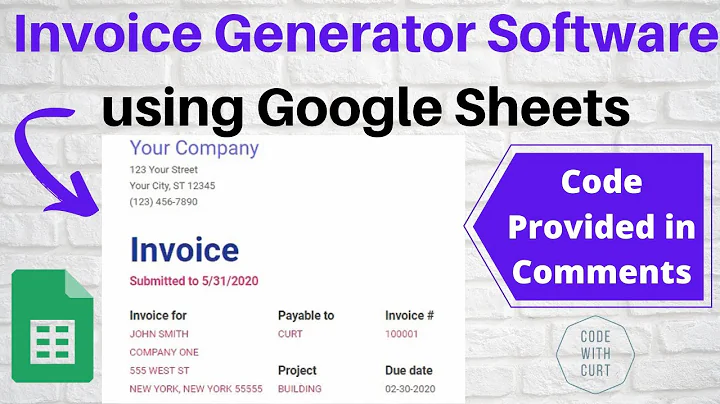5 Proven Marketing Strategies for Your Shopify Store
Table of Contents
- Introduction
- Strategy 1: SEO (Search Engine Optimization)
- Importance of SEO for Shopify store
- How to index your website on Google
- Learning SEO or hiring a professional
- Strategy 2: Social Media
- Utilizing social media for marketing
- Developing a social media strategy
- The power of testimonials and trust-building
- Strategy 3: Email Marketing
- The profitability of email marketing
- Choosing an email marketing platform
- Tips for building your email list
- Strategy 4: Content Marketing
- Importance of content marketing for SEO
- Repurposing content for social media
- Long-term benefits of content marketing
- Strategy 5: Running Paid Ads
- Understanding the reality of Facebook ads
- Prerequisites for successful ad campaigns
- The best Facebook ad strategy for Shopify
Five Strategies to Grow Your Shopify Store
Introduction
If you're planning to start a Shopify store or want to take your existing store to the next level, congratulations on taking the initiative! In this article, we will discuss the five best strategies that can help you grow your Shopify store exponentially. These strategies require time, effort, and the development of your skills or investment in professional help. However, if executed effectively, they can lead to significant financial success. Let's dive into these strategies and explore how they can benefit your Shopify store.
Strategy 1: SEO (Search Engine Optimization)
Importance of SEO for Shopify store
SEO, or search engine optimization, refers to enhancing your website's visibility on search engines like Google. As the majority of consumers do not venture beyond the first page of search results, it's crucial for your Shopify store to appear on that coveted first page. Getting started with SEO involves indexing your website on Google using the Google Search Console. This simple step ensures that your website is known to search engines. However, to truly optimize your website for search rankings, it's recommended to deepen your understanding of SEO.
How to index your website on Google
To index your website on Google, follow the step-by-step process provided by Shopify in the Google Search Console. It's essential to ensure that your product titles and other elements appear correctly in search rankings. While learning SEO on your own is an option, investing in professional help can yield better results and save you time.
Pros:
- Higher visibility on search engines
- Potential for generating significant revenue
Cons:
- Requires time, effort, and potentially monetary investment
- SEO can be complex and may need professional assistance
Strategy 2: Social Media
Utilizing social media for marketing
While it may seem like everyone is on social media these days, many businesses still fail to fully exploit its marketing potential. Surprisingly, less than 30% of businesses utilize social media for marketing, despite the fact that 70% of consumers look to social media for making buying decisions. By developing a robust social media strategy, you can tap into this vast pool of potential customers and increase your sales.
Developing a social media strategy
Creating a successful social media strategy begins with identifying your target audience's pain points and showcasing how your product or service solves their problems. Use compelling testimonials and credibility-enhancing content to build trust with your audience. Additionally, actively engage with your target audience and become a valuable part of their community.
Pros:
- Access to a large pool of potential customers
- Opportunity to build trust and credibility
- Enhances your brand image
Cons:
- Requires consistent effort and content creation
- Needs understanding of different social media platforms
Strategy 3: Email Marketing
The profitability of email marketing
Contrary to popular belief, email marketing is far from dead. On average, every dollar spent on email marketing brings a return of 44%. This makes it one of the most profitable ways to market your Shopify store. One highly recommended platform for email marketing is ConvertKit, though there are other options available as well.
Choosing an email marketing platform
When selecting an email marketing platform, consider factors such as ease of use, automation capabilities, and the availability of useful features like landing page creation. Regardless of the platform, offering incentives like discounts, freebies, or exclusive offers can entice customers to sign up for your email list.
Pros:
- High return on investment
- Direct communication channel with customers
- Allows for targeted marketing campaigns
Cons:
- Building an email list may require time and creativity
Strategy 4: Content Marketing
Importance of content marketing for SEO
Content marketing involves creating informative and engaging content, such as articles, blog posts, videos, and photos, for your Shopify store. Beyond providing useful information to your audience, content marketing significantly contributes to your store's SEO efforts. The more information you provide to search engines like Google, the more likely your website will attract organic traffic and increase sales.
Repurposing content for social media
The content you create for your website can also be repurposed for social media platforms like Pinterest or YouTube. For instance, blog posts can be transformed into social media posts or embedded videos. This synergy between content marketing and social media marketing enhances your overall digital presence.
Pros:
- Boosts your SEO efforts
- Increases website traffic and brand exposure
- Enables you to repurpose content for various platforms
Cons:
- Requires consistency and creativity in content creation
- Long-term results rather than immediate impact
Strategy 5: Running Paid Ads
Understanding the reality of Facebook ads
Running paid ads, especially on Facebook, is often portrayed as a surefire way to make money online. While it is possible to achieve significant success through Facebook ads, it's crucial to approach them with realistic expectations. Simply running ads without laying the groundwork may lead to disappointment.
Prerequisites for successful ad campaigns
Before running paid ads, ensure that your Shopify store is trustworthy, credible, and provides a positive user experience. Investing time and effort in SEO, social media, email marketing, and content marketing will strengthen your store's foundation and increase the likelihood of successful ad campaigns.
Pros:
- Effective way to reach a target audience
- Can yield quick results when executed properly
- Scalable method to increase sales
Cons:
- Requires thorough research and understanding of ad platforms
- May require trial and error to find the right strategy
Highlights
- SEO (Search Engine Optimization) is crucial for your Shopify store's visibility on search engines like Google.
- Social media presents an untapped potential for businesses to reach and influence their target audience.
- Email marketing remains one of the most profitable marketing strategies for promoting your Shopify store.
- Content marketing helps boost your SEO efforts and provides valuable information to your audience.
- Running paid ads, particularly on Facebook, can be highly effective when done in conjunction with other marketing strategies.
FAQ
Q: Is it necessary to hire a professional for SEO optimization?
A: While it is possible to learn and implement SEO strategies yourself, hiring a professional can expedite the process and yield better results.
Q: How can social media impact my Shopify store's sales?
A: Social media provides a platform to engage with your target audience, build trust, and showcase your products or services, eventually leading to increased sales.
Q: Is email marketing effective for e-commerce businesses?
A: Yes, email marketing is one of the most profitable ways to market your Shopify store, with an average return on investment of 44%.
Q: How does content marketing contribute to SEO?
A: Content marketing provides valuable information and keywords that can improve your website's rankings on search engines, leading to increased visibility and sales.
Q: Should I focus solely on running paid ads to grow my Shopify store?
A: Running paid ads can be effective, but it should be accompanied by other marketing strategies like SEO, social media, email marketing, and content marketing for a comprehensive approach to growth.













